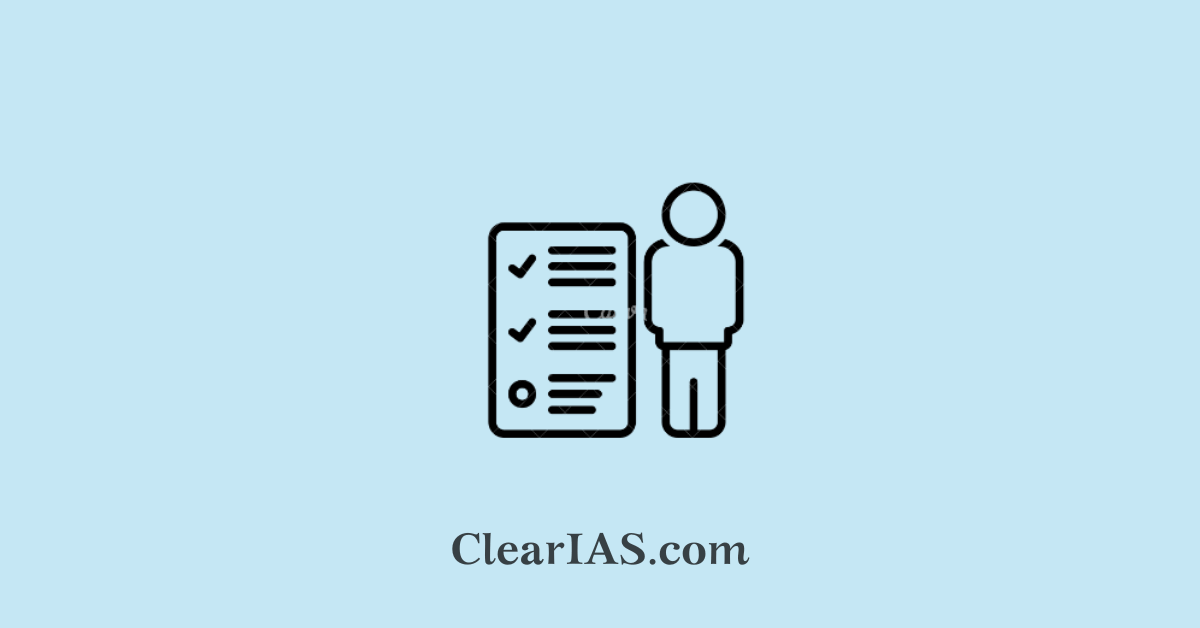
Fundamental Duties are a set of moral and ethical obligations that are enshrined in Part IV-A (Article 51A) of the Constitution of India. Read here to learn them in detail.
Part IVA of the Indian Constitution deals with Fundamental Duties. As of now, there are 11 Fundamental duties.
Originally, the Constitution of India did not contain these duties. Fundamental duties were added by the 42nd and 86th Constitutional Amendment acts.
Citizens are morally obligated by the Constitution to perform these duties. However, like the Directive Principles, these are non-justifiable, without any legal sanction in case of their violation or non-compliance.
Article 51A: Fundamental duties
It shall be the duty of every citizen of India –
(a) to abide by the Constitution and respect its ideals and institutions, the National Flag, and the National Anthem;
(b) to cherish and follow the noble ideals which inspired our national struggle for freedom;
(c) to uphold and protect the sovereignty, unity, and integrity of India;
(d) to defend the country and render national service when called upon to do so;
(e) to promote harmony and the spirit of common brotherhood amongst all the people of India transcending religious, linguistic, and regional or sectional diversities; to renounce practices derogatory to the dignity of women;
(f) to value and preserve the rich heritage of our composite culture;
(g) to protect and improve the natural environment including forests, lakes, rivers, and wildlife, and to have compassion for living creatures;
(h) to develop the scientific temper, humanism, and the spirit of inquiry and reform;
(i) to safeguard public property and to abjure violence;
(j) to strive towards excellence in all spheres of individual and collective activity so that the nation constantly rises to higher levels of endeavor and achievement.
(k) to provide opportunities for education by the parent the guardian, to his child, or a ward between the age of 6-14 years as the case may be.
Also read: Fundamental Rights Available Only to Citizens of India
Info-bits related to Fundamental Duties

- The Fundamental Duties of citizens were added to the Constitution by the 42nd Amendment in 1976, upon the recommendations of the Swaran Singh Committee that was constituted by the government earlier that year.
- Fundamental duties apply only to citizens and not to aliens.
- India borrowed the concept of Fundamental Duties from the USSR.
- The inclusion of Fundamental Duties brought our Constitution in line with Article 29 (1) of the Universal Declaration of Human Rights and with provisions in several modern Constitutions of other countries.
- Out of the ten clauses in Article 51A, six are positive duties and the other five are negative duties. Clauses (b), (d), (f), (h), (j), and (k) require the citizens to perform these Fundamental Duties actively.
- It is suggested that a few more Fundamental Duties, namely, the duty to vote in an election, the duty to pay taxes, and the duty to resist injustice may be added in due course to article 51A in Part IVA of the Constitution. (NATIONAL COMMISSION TO REVIEW THE WORKING OF THE CONSTITUTION: A Consultation Paper on EFFECTUATION OF FUNDAMENTAL DUTIES OF CITIZENS).
- It is no longer correct to say that Fundamental Duties enshrined in Article 51A are not enforceable to ensure their implementation and are a mere reminder. Fundamental Duties have the element of compulsion regarding compliance.
- Several judicial decisions are available for the enforcement of certain clauses under Article 51A.
- Comprehensive legislation is needed for clauses (a), (c), (e), (g), and (i). The remaining 5 clauses, which are exhortations of basic human values, have to be developed amongst citizens through the education system by creating proper and graded curricular input from the primary level of education to the higher and professional levels.
- Available Legal Provisions: Justice Varma Committee was constituted in 1998 “to work out a strategy as well as the methodology of operationalizing a countrywide program for teaching fundamental Duties in every educational institution as a measure of in-service training”. The Verma Committee was conscious of the fact that any non-operationalization of Fundamental Duties might not necessarily be the lack of concern or non-availability of legal and other enforceable provisions, but it was more a case of lacuna in the strategy of implementation. It, therefore, thought it appropriate to list in brief some of the legal provisions already available regarding the enforcement of Fundamental Duties.
Also read: Fundamental Duties As Per Indian Constitution
A summary of such legal provisions is given below:
- To ensure that no disrespect is shown to the National Flag, the Constitution of India, and the National anthem, the Prevention of Insults to National Honour Act, of 1971 was enacted.
- The Emblems and Names (Prevention of Improper Use) Act 1950 was enacted soon after independence, inter alia, to prevent improper use of the National Flag and the National Anthem.
- To ensure that the correct usage regarding the display of the National Flag is well understood, the instructions issued from time to time on the subject have been embodied in the Flag Code of India, which has been made available to all the State Governments, and Union territory Administration (UT).
- There are several provisions in the existing criminal laws to ensure that the activities which encourage enmity between different groups of people on grounds of religion, race, place of birth, residence, language, etc. are adequately punished. Writings, speeches, gestures, activities, exercises, drills, etc. aimed at creating a feeling of insecurity or ill-will among the members of other communities, etc. have been prohibited under Section 153A of the Indian Penal Code (IPC).
- Imputations and assertions that are prejudicial to national integration constitute a punishable offense under Section 153 B of the IPC.
- A Communal organization can be declared unlawful association under the provisions of the Unlawful Activities (Prevention) Act 1967.
- Offenses related to religion are covered in Sections 295-298 of the IPC (Chapter XV).
- Provisions of the Protection of Civil Rights Act, 1955 (earlier the Untouchability (Offences) Act 1955).
- Sections 123(3) and 123(3A) of the Representation of People Act, 1951 declares that soliciting of vote on the ground of religion and the promotion or attempt to promote feelings of enmity or hatred between different classes of citizens of India on the grounds of religion, race, caste, community or language is a corrupt practice. A person indulging in a corrupt practice can be disqualified from being a Member of Parliament or a State Legislature under Section 8A of the Representation of People Act, 1951.





sir kindly publish book list for Hindi medium aspirants at the earliest.
thanks n regards
I could hardly find a Good website for IAS.I like it very Much.
Sir please print in Telugu
Please learn English
I have gone through the given material,all are satisfactory
sir for fundamental duties ,Is this a lot? or I will follow other book
Why is it the last part in detail given in this series? Please continue this and list all articles of Constitution.
It’s really informative and selective .Very important for us and too useful for us.Thank u
MARVELLOUS DETAILS ABOUT FUNDAMENTAL DUTIES…. THANK YOU VERY VERY VERY MUCH…… 🙂👍🙂👍
Nice Pundamental duties
Good information on fundamental duties
Nice attempt
Tq
Nice sir about fundamental duties
Only articles from the constitution are just copied, Please also define them in simpler language.